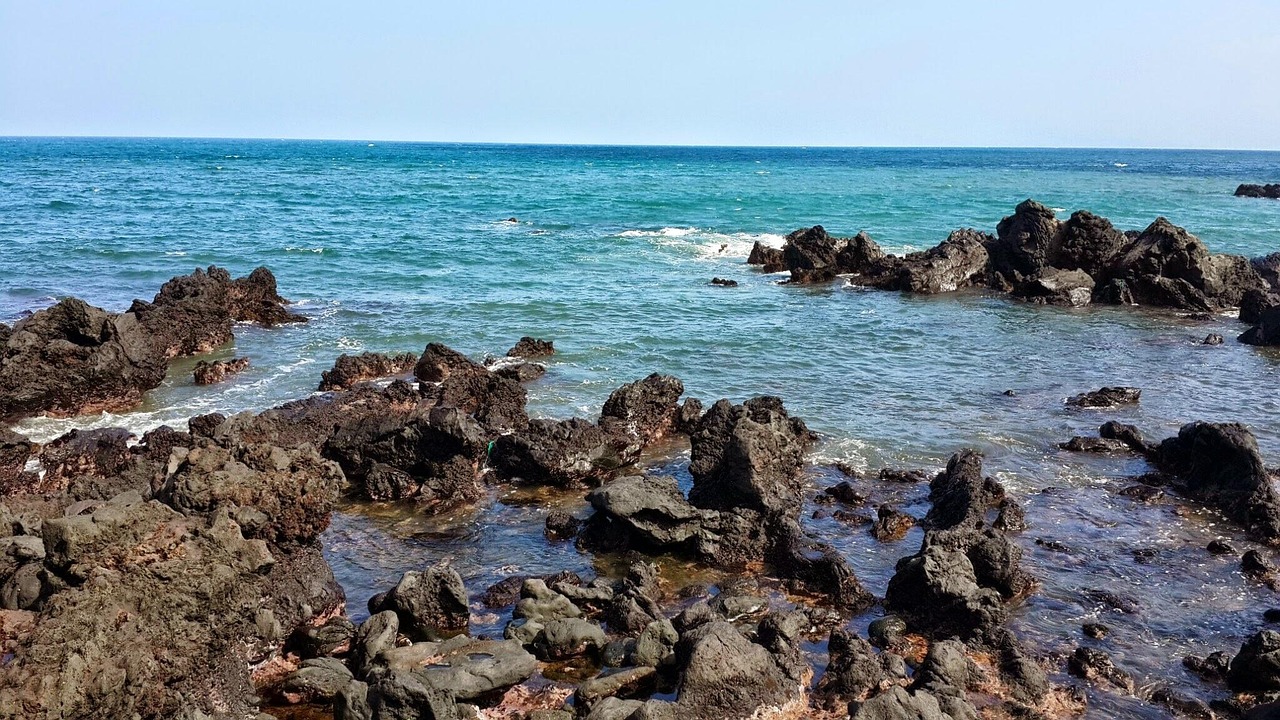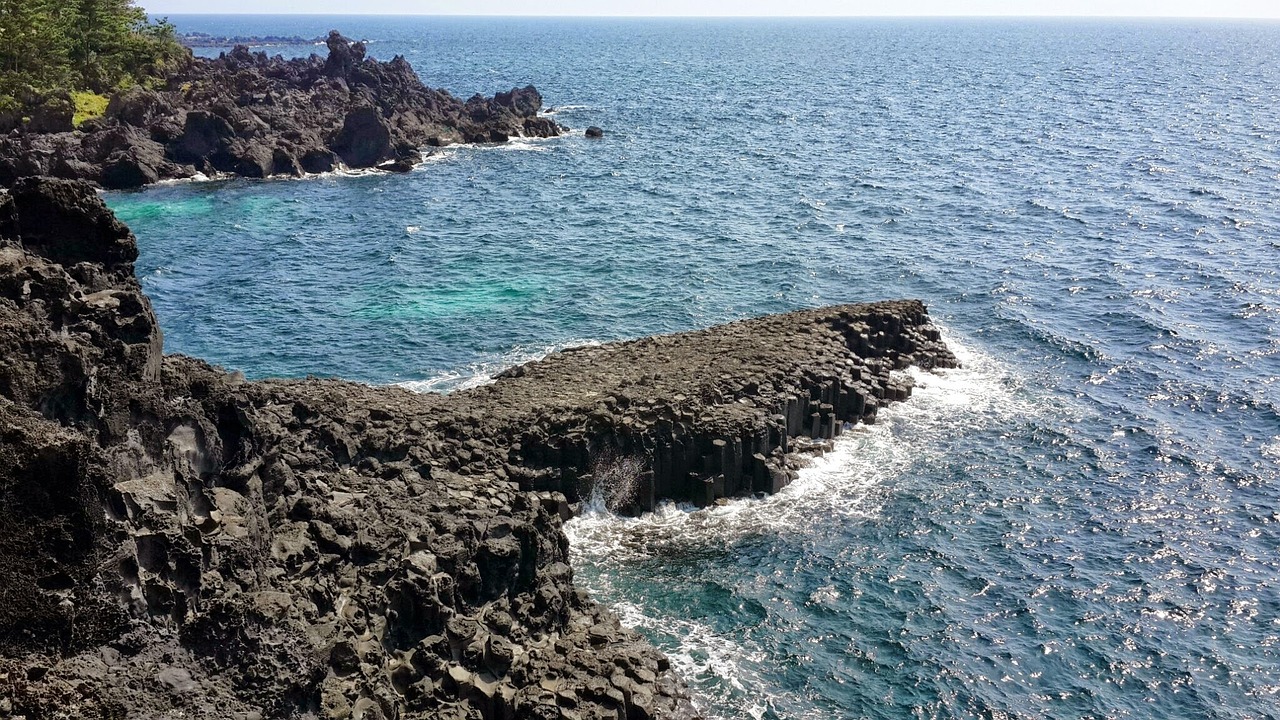Call for Research Papers
Call for Research Papers - DASFAA 2026
The 31st International Conference on Database Systems for Advanced Applications (DASFAA 2026), Jeju, South Korea
The International Conference on Database Systems for Advanced Applications (DASFAA) is a leading international forum for discussing cutting-edge research on database systems and advanced applications. DASFAA, a prestigious and well-established conference, offers a platform for technical presentations and discussions among database researchers, developers, and practitioners from academia, industry, and business. DASFAA 2026 invites high-quality, original, and unpublished submissions that present state-of-the-art R&D activities in database systems and their applications. In particular, as database community researchers are actively engaged in data science/intelligence and AI areas, submissions about those topics are also encouraged in DASFAA 2026.
Important Dates
All deadlines are 23:59 Anywhere on Earth (AoE). Deadlines are firm, and no extensions are planned.
- Abstract Submission: October 20, 2025
- Paper Submission: October 27, 2025
- Acceptance Notification:
January 19, 2026January 26, 2026 - Camera-Ready Submission: February 14, 2026
Topics of Interest
Topics of interest for DASFAA 2026 include, but are not limited to:
Database Systems
- Query processing and optimization
- Indexing and storage systems
- Data models and query languages
- Databases for emerging hardware
- Machine learning in databases
- Data warehousing and Analytic DB
- HTAP databases/Data lakehouses
- Transaction management
Advanced and Domain-Specific Databases
- Graph databases/vector databases
- Temporal and spatial databases
- Data streams and time series
- Probabilistic and uncertain databases
- Embedded and mobile databases
- Knowledge management and RDF
- Text and multimedia databases
Data Management for Specialized Applications
- Data processing for VR/AR/MR
- Social network data management
- Statistical and scientific databases
- Sensor and IoT data management
- Cloud, parallel, and distributed databases
- Blockchain data management
Data Science & Intelligence and Advanced Applications
- RAG(retrieval-augmented generation)-inspired databases
- Multi-modal LLM
- Data mining and knowledge discovery
- Graph and social network analytics
- Neural networks and deep learning
- Recommendation systems
- Information retrieval and summarization
- Semantic Web and knowledge graphs
- Security, privacy, and trust
- Bioinformatics and healthcare
- Crowdsourcing and digital libraries
- Web information systems
Submission Guidelines
Paper submission must be in English. All papers will be double-blind reviewed by the Program Committee based on technical quality, relevance to DASFAA, originality, significance, and clarity. All paper submissions will be handled electronically. Any submitted paper violating the length, file type, or formatting requirements will be rejected without review.
Each submitted paper should include an abstract up to 200 words and be no longer than 16 pages (including references, appendices, etc.) in LNCS (Lecture Notes in Computer Science) format. We encourage authors to cite related work comprehensively. When citing conference papers, please also consider citing their extended journal versions if applicable. All papers must be submitted electronically through the paper submission system in PDF only.
The submitted papers must not be previously published in a refereed journal or conference and must not be under consideration by any other conference or journal during the DASFAA review process. If the paper is accepted, at least one author must complete the regular registration and attend the conference to present the paper. For no-show authors, their papers will not be included in the proceedings. Accepted papers will be published in the conference proceedings.
Double-Blind Review Policy
DASFAA 2026 employs a double-blind review process. Authors must anonymize their submissions rigorously to prevent identity disclosure. Avoid self-citations that reveal authorship.
Conflicts of Interest
Authors must declare conflicts of interest (COIs) using the submission management system. Conflicts include recent collaboration, co-authorship, or personal relationships with PC members.
- X and Y have worked in the same university or company in the past two years, or will be doing so in the next six months on account of an accepted job offer. Different campuses within the same university system do not count as the same university for this purpose - UC Berkeley does not have a conflict with UC Santa Barbara.
- X has been a co-author of a paper with Y in the last three years.
- X has been a collaborator within the past two years, as evidenced in a joint publication (subsumed by the stricter rule on co-authorship above), joint research project, or co-organizing events (e.g., co-chairs of conferences), or are collaborating now (including co-authorship on papers not resulted in final publication yet).
- X is the master's/PhD thesis advisor of Y or vice versa, irrespective of how long ago this was.
- X is a relative or close personal friend of Y.
It is the full responsibility of all authors of a paper to identify and declare all COIs with members of the Program Committee (reviewers, meta-reviewers, and PC chairs) prior to the submission deadline. Submissions with undeclared conflicts or spurious conflicts will be desk-rejected.
Acceptance Categories
Full research papers: Presented orally (optional poster).
Formatting and Submission
Use LNCS format templates available at: LNCS Guidelines
Submission System
Click the button below to submit your paper: Submit Your Paper
Please select the appropriate track during your submission.
Camera-ready Submission Guidelines
Please read this PDF file which contains code of conduct and guidelines for preparing your final paper.
Springer_Instructions_for_Authors_of_Proceedings_CS.pdf
When submitting your final version of the paper, you must submit three files to CMT.
- PDF file of your final version of the paper.
- Zip file that contains all your latex source files with figures that compiles.
- Copyright document: SNCS_ProceedingsPaper_LTP_ST_SN_Singapore.docx
Contact Information
For any problems with the submission system, please contact the research PC co-chairs (hyungsoo.jung@snu.ac.kr, tzwang@sfu.ca, toyoda@tkl.iis.u-tokyo.ac.jp)
Program Committee Chairs
- Hyungsoo Jung, Seoul National University, South Korea
- Tianzheng Wang, Simon Fraser University, Canada
- Masashi Toyoda, The University of Tokyo, Japan
Senior Review Committee (SRC) member
-
Alkis Simitsis , Athena Research Center -
Byung Suk Lee , University of Vermont -
Cheng Long , Nanyang Technological University -
Da Yan , Indiana University Bloomington -
Dong Wen , University of New South Wales -
Hideyuki Kawashima , Keio University -
Jianliang Xu , Hong Kong Baptist University -
Jieming Shi , The Hong Kong Polytechnic University -
Jun Miyazaki , Institute of Science Tokyo -
Ke Wang , SFU -
Kyoung-Sook Kim , National Institute of Advanced Industrial Science and Technology -
Kyuseok Shim , Seoul National University -
Leong Hou U , University of Macau -
Nikos Bikakis , Hellenic Mediterranean University & Athena RC -
Sang-Wook Kim , Hanyang University, Korea -
Satoshi Oyama , Nagoya City University -
Sebastian Link , University of Auckland -
Sen Wang , The University of Queensland -
Sibo Wang , The Chinese University of Hong Kong -
Steven Whang , KAIST -
Verena Kantere , University of Ottawa -
Wei-Shinn Ku , Auburn University -
Wen Hua , The Hong Kong Polytechnic University -
Wenjie Zhang , University of New South Wales -
Xiangyu Ke , Zhejiang University -
Xin Cao , University of New South Wales -
Xin Wang , Tianjin University -
Yanfeng Zhang , Northeastern University -
Yixiang Fang , School of Data Science, The Chinese University of Hong Kong, Shenzhen -
Yon Dohn Chung , Korea University -
Zeke Wang , Zhejiang University
Program Committee member
-
Alexander Zhou , The Hong Kong Polytechnic University -
Anne Laurent , University of Montpellier -
Aziz Nasridinov , Chungbuk National University -
Beibei Li , College of Computer Science, Chongqing University -
Bin Wang , Northeastern University -
BINBIN ZHOU , Hangzhou City University -
Bo Xu , Dalian University of Technology -
Byoungwook Kim , Gangneung-Wonju National University -
Byungchul Tak , Kyungpook National University -
Cai Xu , Xidian University -
Changdong Wang , SYSU -
Chao Zhang , Renmin University of China -
Chen Shen , Megagon Labs -
Chengcheng Mai , Nanjing Normal University -
Chengliang Chai , Beijing Institute of Technology -
Chenhao Ma , The Chinese University of Hong Kong, Shenzhen -
Chenxu Wang , Xi'an Jiaotong University -
Chenyang Wang , Aalto University -
Cheqing Jin , East China Normal University -
Chihyun Park , Kangwon National University -
Chongjun Wang , Nanjing University -
Christos Doulkeridis , University of Piraeus -
Dan He , University of Queensland -
Dan Li , Sun Yat-Sen University -
Debarati Chakraborty , University of Hull -
Derong Shen , Northeastern University -
Di Yao , Institute of Computing Technology, Chinese Academy of Sciences -
Dimitris Kotzinos , ETIS / CY Cergy Paris University -
Divya Saxena , Indian Institute of Technology Jodhpur -
Dongha Lee , Yonsei University -
Dongjin Yu , Hangzhou Dianzi University -
Dong-Kyu Chae , Hanyang University -
Eenjun Hwang , Korea University -
Faming Li , Northeastern University -
Fei Guo , School of Computer Science and Engineering, Central South University -
Ge Yu , Northeastern University -
Gengrui Zhang , Concordia University -
Gong Cheng , Nanjing University -
Guangyou Zhou , Central China Normal University -
Guanjie Zheng , Shanghai Jiao Tong University -
Guixian Zhang , China University of Mining and Technology -
Ha-Myung Park , Kookmin University -
Hanbing Zhang , Fudan University -
Hanchen Wang , University of Technology Sydney -
Hang Yu , Shanghai University -
Hao Xin , Hong Kong University of Science and Technology -
Haobing Liu , Ocean University of China -
Haofen Wang , Tongji University -
Haoyang LI , The Hong Kong Polytechnic University -
Hayato Yamana , Waseda University, Japan -
Hengyu Liu , Aalborg University -
Hiroaki Ohshima , University of Hyogo -
Hongzhi Wang , Harbin Institute of Technology -
Huaijie Zhu , Sun Yat-Sen University -
Hui Li , Xidian University -
Huiqi Hu , East China Normal University -
Hyun Ji Jeong , Kongju National University -
Hyunsouk Cho , Ajou University -
Jaebum Kim , Konkuk University -
Jaemin Yoo , KAIST -
Jaesoo Yoo , Chungbuk National University -
Jen-Wei Huang , National Cheng Kung University -
Ji Zhang , The University of Southern Queensland -
Jiali Mao , East China Normal University -
Jianbin Qin , Shenzhen Institute of Computing Sciences, Shenzhen University -
Jianqiu Xu , Nanjing University of Aeronautics and Astronautics -
Jianxin Li , Beihang University -
Jianxiong Guo , Beijing Normal University -
Jie Shao , University of Electronic Science and Technology of China -
Jilin Hu , Aalborg University -
Jin Wang , Arizona State University -
Jingya Zhou , Soochow University -
Jinhong Jung , Soongsil University -
Jithin Vachery , NUS -
Jonghyeok Park , Korea University -
Jongik Kim , Chungnam National University -
Jongwuk Lee , Sungkyunkwan University -
Joonseok Lee , Google Research & Seoul National University -
Ju Fan , Renmin University of China -
Jungeun Kim , Inha University -
Junghoon Kim , UNIST -
Junho Shim , SookmyungWomen' s University -
Junhua Fang , Soochow University -
Junjie Yao , East China Normal University -
Jun-Ki MIN , Korea University of Technology and Education -
Junya Arai , Nippon Telegraph and Telephone Corporation -
Kai Zhang , University of Science and Technology of China -
Kaixi Hu , Wuhan Textile University -
Kangzheng Liu , Huazhong University of Science and Technology -
Kesheng Wu , LBNL -
Ki Yong Lee , Sookmyung Women's University, Korea -
Kijung Shin , KAIST -
Krishna Reddy P , IIIT, Hyderabad -
Kristian Torp , Aalborg University -
Kwanghyun Park , Yonsei University -
Kyong-Ha Lee , Korea Institute of Science and Technology Information -
Kyoungsoo Bok , WONKWANG UNIVERSITY -
Kyungyong Lee , Hanyang University -
Ladjel Bellatreche , ISAE-ENSMA -
Lanjun Wang , School of New Media and Communication, Tianjin University -
Lei Li , The Hong Kong University of Science and Technology (Guangzhou) -
Li Jiajia , Shenyang Aerospace University -
Libin Zheng , Sun Yat-sen University -
Lijun Chang , The University of Sydney -
Linglin Yang , Peking University -
Lingwei Chen , Rochester Institute of Technology -
Lingyang Chu , McMaster University -
Lizhen Cui , ShanDong University -
Lu Chen , Swinburne University of Technology -
Marwan Hassani , TU Eindhoven -
Meng Liu , National University of Defense Technology -
Meng Wang , Southeast University -
Mengxuan Zhang , Australian National University -
Mijin An , SAP -
Ming Zhong , Wuhan University -
Minghao Zhao , East China Normal University -
Minghe Yu , Northeastern University -
Mingyue Cheng , University of Science and Technology of China -
Mo Li , Liaoning University -
Muhammad Haris , L3S -
Nannan Wu , Tianjin University -
Ning Liu , School of Software, Shandong University -
Ning Wang , School of Computer Science & Technology, Beijing Jiaotong University -
Ning Yang , Sichuan University -
Ningning Cui , Chang'an University -
Norio Katayama , National Institute of Informatics -
O-Joun Lee , The Catholic University of Korea -
Ozan Kahramanogullari , Free University of Bozen-Bolzano -
Peng Cai , East China Normal University -
Peng Cheng , Tongji University -
Peng Liu , Guangxi Normal University -
Pengpeng Zhao , Soochow University -
Ping Lu , Beihang Univ. -
Qi Song , University of Science and Technology of China -
Qiang Qu , Shenzhen Institutes of Advanced Technology, Chinese Academy of Sciences -
Qiang Yin , Shanghai Jiao Tong University -
Qianzhen Zhang , National University of Defense Technology -
Qingyun Sun , Beihang University -
Qingzhi Ma , Soochow University -
Qiyao Peng , Tianjin University -
Quanqing Xu , Beijing University of Posts and Telecommunications, China -
Renjie Sun , Zhejiang Gongshang University -
Rui Zhou , Swinburne University of Technology -
Rui Zhu , Shenyang Aerospace University -
Ruiyuan Li , Chongqing University -
Sanghyun Park , Yonsei University -
Sanjay Kumar Madria , Missouri University of Science & Technology, USA -
Savong Bou , University of Tsukuba -
Sean Chester , University of Victoria -
SeongKu Kang , Korea University -
Shanshan Feng , Wuhan University -
Shaoxu Song , Tsinghua University -
Sheng Li , Institute of Science Tokyo -
Shengan Zheng , MoE Key Lab of Artificial Intelligence, AI Institute, Shanghai Jiao Tong University -
Shiyu Yang , Guangzhou University -
Shoko Wakamiya , Nara Institute of Science and Technology -
Shuai Xu , Nanjing University of Aeronautics and Astronautics -
Shunmei Meng , Nanjing University of Science and Technology -
Shuyuan Li , Beihang University -
Si Liu , Texas A&M University -
SILVESTRO ROBERTO poccia , University of Turin -
Siyuan Chen , Guangzhou University -
Suan Lee , Semyung University -
Sungsu Lim , Chungnam National University -
Sungwon Jung , Sogang University -
Suprio Ray , University of New Brunswick, Fredericton -
Susik Yoon , Korea University -
Tae-Sun Chung , Ajou University -
Tangpeng Dan , Wuhan University of Technology -
Tao Qiu , Shenyang Aerospace University -
Tao Zhao , National University of Defense Technology -
Taotao Cai , University of Southern Queensland -
Teng Ma , Alibaba Group -
Tianzi Zang , Nanjing University of Aeronautics and Astronautics -
Tieke He , Nanjing University -
Tiezheng Nie , Northeastern Univeristy -
Tomoki Yoshihisa , Shiga University -
Uday Kiran RAGE , The University of Aizu -
Wei Hu , Nanjing University -
Wei Li , Harbin Engineering University -
Wei Liu , Sun Yat-Sen University -
Wei Song , Wuhan University -
Wei Emma Zhang , The University of Adelaide -
Wentao Li , University of Leicester -
Wolf-Tilo Balke , TU Braunschweig -
Woohwan Jung , Hanyang University -
Woong-Kee Loh , Gacheon Univ. -
Xi Guo , University of Science and Technology Beijing -
Xiang Ao , Institute of Computing Technology, CAS -
Xiang Lian , Kent State University -
Xiang Zhao , National University of Defense Technology -
XIANGGUO SUN , CUHK -
Xiangmin Zhou , RMIT University -
Xiangtao Li , Jilin University -
Xiangyu Song , Chang'an University -
Xiao Pan , Shijiazhuang Tiedao University -
Xiaofeng Gao , Shanghai Jiaotong University -
Xiaoling Wang , East China Normal University -
Xiaoou Ding , Harbin Institute of Technology -
Xiaoyang Wang , University of New South Wales -
Xin Huang , Hong Kong Baptist University -
Xinqiang Xie , Neusoft -
Xiuhua Li , Chongqing University -
Xuanhe Zhou , Shanghai Jiao Tong University -
Xuyun Zhang , Macquarie University -
Yajun Yang , Tianjin University -
Yan Zhang , Peking University -
Yang Chen , Fudan University -
Yang-Sae Moon , Kangwon National University, Korea -
Yanhao Wang , East China Normal University -
Yanmei Hu , Chengdu University of Technology -
Yanmin Zhu , Shanghai Jiao Tong University -
Yeon-Chang Lee , UNIST -
Yeonsu Park , Kangwon National University -
Yingxia Shao , BUPT -
Yishu Wang , Northeastern University -
Yohan Jo , Seoul National University -
Yong Zhang , Tsinghua University -
Yongchao Liu , Ant Group -
Yonghong Yu , Nanjing University of Posts and Telecommunications -
Yongpan Sheng , Southwest University -
Yoshiyuki Shoji , Shizuoka University -
Young-Koo Lee , Kyung Hee University -
Young-Kyoon Suh , Kyungpook National University -
Yu Hua , Huazhong University of Science and Technology -
Yu Liu , Huazhong University of Science and Technology -
Yu Sun , Nankai University -
Yu Yang , The Education University of Hong Kong -
Yuanbo Xu , Jilin University -
Yuankai Fan , Institute of Artificial Intelligence (TeleAI), China Telecom -
Yuchen Li , Singapore Management University -
Yue Kou , Northeastern University -
Yunjun Gao , Zhejiang University -
yunpeng chai , renmin university of china -
Yunyong Ko , Chung-Ang University -
Yurong Cheng , Beijing institute of technology -
Yuxiang Zeng , Hong Kong University of Science and Technology -
Zhao Zhang , East China Normal University -
ZHAOJING LUO , Beijing Institute of Technology -
Zhaonian Zou , Harbin Institute of Technology -
Zhaoquan Gu , Harbin Institute of Technology (Shenzhen) -
Zhengyi Yang , University of New South Wales -
Zhihui Wang , Fudan University -
Zhiwei Zhang , Beijing Institute of Technology -
Zhixu Li , Renmin University of China -
Zhongnan Zhang , Xiamen University -
Zi Chen , Wuhan University of Technology -
Zimu Zhou , City University of Hong Kong -
Zirui Zhuang , Beijing University of Posts and Telecommunications



